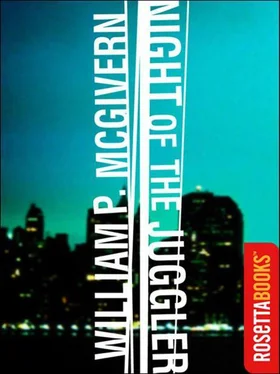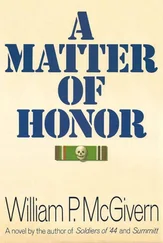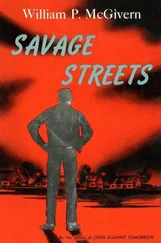William McGivern - Night of the Juggler
Здесь есть возможность читать онлайн «William McGivern - Night of the Juggler» весь текст электронной книги совершенно бесплатно (целиком полную версию без сокращений). В некоторых случаях можно слушать аудио, скачать через торрент в формате fb2 и присутствует краткое содержание. Жанр: Триллер, на английском языке. Описание произведения, (предисловие) а так же отзывы посетителей доступны на портале библиотеки ЛибКат.
- Название:Night of the Juggler
- Автор:
- Жанр:
- Год:неизвестен
- ISBN:нет данных
- Рейтинг книги:3 / 5. Голосов: 1
-
Избранное:Добавить в избранное
- Отзывы:
-
Ваша оценка:
- 60
- 1
- 2
- 3
- 4
- 5
Night of the Juggler: краткое содержание, описание и аннотация
Предлагаем к чтению аннотацию, описание, краткое содержание или предисловие (зависит от того, что написал сам автор книги «Night of the Juggler»). Если вы не нашли необходимую информацию о книге — напишите в комментариях, мы постараемся отыскать её.
Night of the Juggler — читать онлайн бесплатно полную книгу (весь текст) целиком
Ниже представлен текст книги, разбитый по страницам. Система сохранения места последней прочитанной страницы, позволяет с удобством читать онлайн бесплатно книгу «Night of the Juggler», без необходимости каждый раз заново искать на чём Вы остановились. Поставьте закладку, и сможете в любой момент перейти на страницу, на которой закончили чтение.
Интервал:
Закладка:
“They were in bed and she was laughing,” Kate said, and then added the logical prologue to the sentence as almost an afterthought: “I heard my mother say it to my father.”
“When’s your mother coming back, Kate?”
“Well, we’re not sure. She calls every day, of course, but she’s got to take care of her aunt.”
“What’s the matter with her aunt?”
Kate shrugged in what she meant to suggest was a gesture of casual dismissal, but she felt the sting of tears in her eyes and looked quickly away from Tish, tilting her face against the cold, freshening breezes.
“She’s got some kind of flu, from Brazil or from Greece or wherever it’s coming from this year.”
Again Tish felt a pang of anxiety; she shouldn’t have asked about Kate’s mother.
“Can I call you later, Kate?” Tish asked, with a fruitless effort to make the question sound casual. “I mean, after homework?”
“If you want to,” Kate said, and hurried off into the lobby of her building where old Mr. Brennan, the uniformed doorman, greeted her with a genuine smile and walked the length of the foyer with her to the elevators.
At about six o’clock that night, Luther Boyd let himself into the Fifth Avenue apartment which he had rented for three months from a theatrical producer who was staging a show in London, a production (he had explained to Boyd’s complete disinterest) which would feature Sir Laurence Olivier as an albino Othello, surrounded by an otherwise all-black cast, save for Desdemona, who would be played by the Oriental actress Yoko Tani, whose role-as opposed to the others-would be comprised of operatic recitative and arias. Luther Boyd had wished him well but without excessive conviction since the last play he himself had seen had been a production of Camelot after Julie Andrews had left the company.
The walls of the large apartment were covered with memorabilia of the theater: faded playbills, first-night telegrams, the glossy photographs of actresses and actors with intimate greetings and signatures. None of this held much interest for Luther Boyd, although he knew that some of the glamorous faces awed and fascinated Kate.
Luther Boyd thought there was something sentimental and childish about the lavish salutations and congratulations on the photographs and in the telegrams. And he thought there was something tacky and unsporting in the defensive effusions which obviously stemmed from box-office flops. But he could live with all this. He had rented the apartment, not for its furnishings, but for the dramatic and sustaining views of Central Park afforded him from the formal drawing room and his book-lined study. The shining crowns of Chinese elms and black alders that he could observe from these fifth-floor windows gave him cheerful memories of the six hundred open acres which surrounded his dairy farm in southern Pennsylvania. Also, he enjoyed walking in the park in the evening, and since flora and fauna and terrain were as much his profession as his pleasure, his investigations satisfied him as both a soldier and a naturalist.
On his leisurely strollings from the southern end of the Mall (his customary starting point) north past the cruciform esplanade of the band shell and then farther north to the boathouse and lake, he had observed dozens of domestic and exotic trees and shrubs; in his east-west crisscrossings along this north-south route (he had been advised to avoid the Ramble), he had found what amounted to a naturalist’s laboratory. In these few weeks Boyd had seen and studied, sometimes to his astonishment, towering cork trees, monumental magnolias with leaves like polished green leather, English and peach-leafed hawthorns, cucumber trees, bald cypresses, red and silver maples, and oaks of all varieties, black and English, red and willow and scarlet.
As he closed the door of the apartment, Luther Boyd was greeted by a furious excitement by Kate’s Scottie, Harry Lauder, and by what he judged to be a gratified insolence from their housekeeper, Carrie Snow, a stout middle-aged black lady, who stood waiting for him in the long drawing room with her hat on and a brownpaper market bag in her arms.
“You’ll have to clean up after your ownselves tonight, Mr. Boyd.” Her white teeth flashed in a smile of relish against the gloom of the long room, which at this hour was lighted only with a pair of table lamps.
“Food’s in the oven, and the plates are out, so you’ll have to serve yourself, too.”
“Very well, Carrie,” Luther Boyd said. “And Kate?”
“She’s in the bathtub, but first she did some homework before she used up all that was left of that pheasant in a sandwich.”
“We’ve still got six or eight brace in the freezer, Carrie.”
“I know, but it seems strange.”
Whatever Carrie’s point was, Luther Boyd thought with a certain weary humor, she was certainly determined to make it.
“What’s strange about it?” he asked her, trapped by their relationship-which was blended of what: sympathy, courtesy, guilt? — into asking a question when he didn’t give one goddamn about the answer.
Barbara had never appreciated his frequent need to get back to barracks and training camps. In those simple environments, one could cut through just such knots of supererogatory sensitivities. One told a captain what to do, and the captain did it. Or he’d better have a goddamned good reason for not doing it. But here Luther Boyd stood pleasantly tired after six hours in an office and two hours on a squash racquets’ court, fencing with a gloomy black lady’s hurt feelings, judging without interest what finesse might incline this tiny, boring conflict toward a sensible and, he hoped, speedy conclusion.
“Well, the strange thing is, Mr. Boyd, is a young girl, I mean, a baby child, sitting around in the afternoon watching TV and eating pheasant sandwiches.”
There it was, the rebuke. Now presumably Carrie Snow felt better, having got that off her chest. Luther Boyd glanced at his watch.
“I’m afraid you’ll have to hurry, Mrs. Snow, if you’re going to make that bus.”
This was a nice, tactical stroke, but it made Luther Boyd feel irritated with himself, because that had been his rebuke to her, a dismissal, with all that meant to her crotchety but basically kindly sensitivities.
Luther Boyd disliked insolence, not because it rankled him in any personal sense, but because he correctly assayed it as a surrogate for anger, an emotion he respected, particularly if it resulted in positive and constructive action. Yet stern as he was in his judgments on everyone around him, including himself, he was fair enough to understand that anger was a luxury that certain blacks and other misbegotten creatures of the world could savor only in the silence of their souls.
Mrs. Snow looked uneasily past him toward the kitchen.
“I could catch the next bus, Mr. Boyd-it don’t matter that much-and put away the things after dinner.”
He saw the white flags of surrender in her fluttering eyes. (“Thank you kindly, General Lee. It’s a privilege to accept such a magnificent example of the swordmaker’s art.”) What else could he do but accept her offer of service? He paid her well, and he and Barbara and Kate treated her well; but if they denied her a sense of usefulness, what did the rest of it mean?
“That’s very kind of you, Mrs. Snow,” Luther Boyd said.
And so, his tactical energies expended in trivia, Luther Boyd went toward his study, while Mrs. Snow, her dignity flying like plumes, strode importantly into the kitchen.
Kate Boyd, who liked to think of herself as a curious observer rather than as a busybody, made it a habit to take her bath with the door open a crack so that she missed nothing that went on in the apartment, and when she heard her father’s footsteps going toward his study, she sang out, “Daddy, is that you?”
Читать дальшеИнтервал:
Закладка:
Похожие книги на «Night of the Juggler»
Представляем Вашему вниманию похожие книги на «Night of the Juggler» списком для выбора. Мы отобрали схожую по названию и смыслу литературу в надежде предоставить читателям больше вариантов отыскать новые, интересные, ещё непрочитанные произведения.
Обсуждение, отзывы о книге «Night of the Juggler» и просто собственные мнения читателей. Оставьте ваши комментарии, напишите, что Вы думаете о произведении, его смысле или главных героях. Укажите что конкретно понравилось, а что нет, и почему Вы так считаете.












